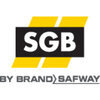
i
OSG Build Infra Project
Filter interviews by
OSG Build Infra Project Interview Questions and Answers
Be the first one to contribute and help others!
Interview questions from similar companies

Quantitative reasoning
(5 Questions)
- Q1. About yourself and past experiences.
- Q2. Managerial round
- Q3. About company information
- Q4. About yourself and extracurricular activities
- Q5. See yourself in the next 5 yrs
Interview Preparation Tips

Associate Checker Interview Questions & Answers
Cadeploy Engineeringposted on 30 Dec 2024
I applied via Company Website and was interviewed in Nov 2024. There was 1 interview round.
(2 Questions)
- Q1. What are the OSHA standards applicable to building construction?
- Ans.
OSHA standards applicable to building construction include fall protection, hazard communication, scaffolding safety, and electrical safety.
Fall protection requirements include guardrails, safety nets, and personal fall arrest systems.
Hazard communication standards require employers to provide information about hazardous chemicals used on site.
Scaffolding safety regulations cover proper construction, use, and maintenan...
- Q2. What are the AISC codes applicable to steel structures?
- Ans.
AISC codes applicable to steel structures include AISC 360 for design of structural steel buildings and AISC 341 for seismic design.
AISC 360 - Specification for Structural Steel Buildings
AISC 341 - Seismic Provisions for Structural Steel Buildings

Electrical Engineer Interview Questions & Answers
VIKRAN Engineering & Eximposted on 22 Dec 2024
(2 Questions)
- Q1. What is the output voltage of an AAAC Rabbit conductor?
- Ans.
The output voltage of an AAAC Rabbit conductor is typically around 600 volts.
The output voltage of an AAAC Rabbit conductor is usually around 600 volts.
The exact output voltage may vary depending on the specific application and conditions.
It is important to consult the manufacturer's specifications for accurate information.
- Q2. What is your execution work plan?
- Ans.
My execution work plan involves setting clear goals, creating a timeline, assigning tasks, monitoring progress, and adjusting as needed.
Set clear goals and objectives for the project
Create a detailed timeline with milestones and deadlines
Assign tasks to team members based on their strengths and expertise
Regularly monitor progress and make adjustments as needed
Communicate effectively with team members and stakeholders
Ut...
Interview Preparation Tips

(5 Questions)
- Q1. What is job safety analysis
- Ans.
Job safety analysis is a process of identifying potential hazards in a job task and implementing controls to mitigate risks.
Involves breaking down a job task into steps
Identifying potential hazards for each step
Determining preventive measures to reduce risks
Ensures workers are aware of safety procedures
Examples: construction site JSA, manufacturing plant JSA
- Q2. What is hazard identification and risk assessment
- Ans.
Hazard identification is the process of identifying potential sources of harm in the workplace, while risk assessment involves evaluating the likelihood and severity of those hazards.
Hazard identification involves identifying potential sources of harm such as chemicals, machinery, or ergonomic factors.
Risk assessment involves evaluating the likelihood and severity of harm from these hazards.
The goal is to implement con...
- Q3. What is fire safety
- Ans.
Fire safety refers to measures taken to prevent and protect against the risks of fire.
Fire safety includes having working smoke detectors in place.
It also involves creating and practicing a fire escape plan.
Proper storage and handling of flammable materials is crucial for fire safety.
Regular maintenance of fire extinguishers and other fire safety equipment is important.
Training employees on fire safety protocols is ess
- Q4. Accident investigation
- Q5. What is hazard site
- Ans.
A hazard site is a location where there is a potential risk of harm to people, property, or the environment.
Hazard sites can include industrial facilities, chemical plants, nuclear power plants, and construction sites.
These sites may contain hazardous materials, dangerous equipment, or unsafe conditions.
Proper safety measures and protocols must be followed at hazard sites to prevent accidents and injuries.
Examples of h...

I applied via Walk-in and was interviewed in Jul 2024. There was 1 interview round.
(5 Questions)
- Q1. What is bar bending schedule
- Ans.
Bar bending schedule is a document that provides details of reinforcement steel bars used in construction projects.
It includes details such as bar mark, bar size, quantity, shape, and bending dimensions.
Helps in estimating the quantity of steel required for construction.
Ensures proper placement and bending of reinforcement bars as per design specifications.
Used by contractors, engineers, and construction workers for re...
- Q2. 28 days concrete strength
- Ans.
28 days concrete strength is the standard measure of concrete's compressive strength after 28 days of curing.
28 days concrete strength is the standard measure of concrete's compressive strength after 28 days of curing
It is important for assessing the quality of concrete and its ability to support structural loads
The strength of concrete typically continues to increase beyond 28 days, but 28 days is the standard testing
- Q3. Difference between mivan and conventional
- Ans.
Mivan is a modern construction technique using aluminum formwork, while conventional construction involves traditional methods like brick and mortar.
Mivan is faster and more efficient than conventional construction methods.
Mivan requires skilled labor for installation of aluminum formwork.
Conventional construction is more labor-intensive and time-consuming.
Mivan provides better quality finishes compared to conventional...
- Q4. What is self leveling concrete
- Ans.
Self leveling concrete is a type of concrete that has a high flow consistency and is used to create smooth and level surfaces.
Self leveling concrete is designed to flow easily and settle into place without the need for troweling or leveling.
It is commonly used to level uneven floors before installing flooring materials such as tile or carpet.
Self leveling concrete can be applied in thicknesses ranging from a featheredg...
- Q5. How many days will take 1st Aluform mockup Concreting
- Ans.
The 1st Aluform mockup concreting typically takes 1-2 days to complete.
1-2 days is the usual timeframe for 1st Aluform mockup concreting
Factors such as weather conditions, size of the mockup, and availability of resources can affect the duration
Proper planning and coordination can help expedite the process
Interview Preparation Tips
- Construction
- Structural
- Quality Control
- Quality Assurance
- Bar Bending Schedule
- Project Execution

I applied via Referral and was interviewed in Aug 2024. There was 1 interview round.
(5 Questions)
- Q1. Whats is stop work application
- Ans.
Stop work application is a procedure used to halt work activities due to safety concerns or violations.
Stop work applications are typically used when there is an imminent danger to workers or the environment.
Workers are trained to recognize when a stop work application is necessary and how to properly implement it.
Examples of reasons for a stop work application include unsafe working conditions, equipment malfunctions,
- Q2. What is scaffolding
- Ans.
Scaffolding is a temporary structure used to support workers and materials during construction or maintenance work.
Scaffolding provides a safe working platform at height
It is typically made of metal or wood
Different types include tube and coupler, frame, and system scaffolding
Scaffolding must be inspected regularly for safety
- Q3. Types of scaffolding
- Ans.
Types of scaffolding include supported scaffolding, suspended scaffolding, and aerial lifts.
Supported scaffolding is the most common type and is supported by the ground or a building structure.
Suspended scaffolding hangs from the roof or top of a building and is commonly used for window washing or painting.
Aerial lifts are platforms lifted by cranes or other equipment and are commonly used for tasks at height.
Other typ...
- Q4. Types of accident/incident
- Ans.
Types of accidents/incidents include slips, trips, falls, machinery accidents, chemical exposures, and fires.
Slips, trips, and falls are common in workplaces due to wet floors, cluttered walkways, or uneven surfaces.
Machinery accidents can occur when proper safety procedures are not followed or equipment malfunctions.
Chemical exposures may result from spills, leaks, or improper handling of hazardous substances.
Fires ca...
- Q5. 0% accident incident work
Interview Preparation Tips

I applied via LinkedIn and was interviewed in Dec 2024. There was 1 interview round.
(1 Question)
- Q1. Accounting journal entries

HSE Officer Interview Questions & Answers
China State Construction Engineering Corporationposted on 12 Oct 2024
I applied via Approached by Company and was interviewed in Sep 2024. There was 1 interview round.
(2 Questions)
- Q1. Whats LEL tell procedures
- Q2. Tel us the control of confind

(1 Question)
- Q1. Very pathetic interview process.
Interview Preparation Tips

Assistant Material Engineer Interview Questions & Answers
Lea Associates South Asiaposted on 19 Sep 2024
(2 Questions)
- Q1. How many grade of Bitumen ?
- Ans.
There are mainly four grades of bitumen commonly used in construction: VG-10, VG-20, VG-30, and VG-40.
VG-10: Suitable for low-traffic roads
VG-20: Suitable for medium-traffic roads
VG-30: Suitable for high-traffic roads
VG-40: Suitable for heavy-duty traffic areas like airports and container terminals
- Q2. What is the compressive strength of cement mortar cube 3 days
- Ans.
The compressive strength of cement mortar cube at 3 days is typically around 20-25 MPa.
Compressive strength of cement mortar cube is an important parameter to assess its quality and durability
The strength of cement mortar increases with age, so 3 days is an early testing point
Typical compressive strength values for cement mortar cubes at 3 days range from 20-25 MPa
OSG Build Infra Project Interview FAQs
Tell us how to improve this page.
Interview Questions for Popular Designations
Interview Questions from Similar Companies

Lea Associates South Asia

ABCI Infrastructures

R.V.R. PROJECTS

Nesma & Partners
Calculate your in-hand salary
- Home >
- Interviews >
- OSG Build Infra Project Interview Questions



